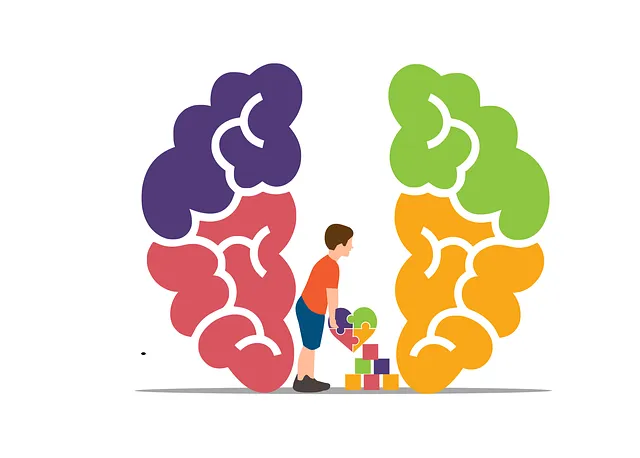Kaiser Permanente's outreach programs in Lakewood excel in providing inclusive mental healthcare through understanding local contexts and diverse populations. Integrating wellness tools like journaling and stress management, as seen in their Mental Wellness Podcast Series, has led to improved well-being, open conversations, and positive Kaiser Permanente mental health center reviews in Lakewood. Cultural competency training for healthcare providers is key, ensuring tailored interventions that build trust. Continuous evaluation using feedback from attendees helps optimize programs like Mindfulness Meditation and Stress Management Workshops, addressing depression prevention and community needs, as evidenced by the center's favorable reviews.
Community outreach programs play a vital role in healthcare, bridging the gap between medical services and those who need them most. This article explores this crucial aspect, using the Kaiser Permanente Mental Health Center in Lakewood as a model for success. We’ll delve into strategies for effective implementation, highlighting engagement with the local community, and provide insights on measuring program impact through evaluation. Discover how initiatives like these enhance healthcare accessibility, drawing from the positive outcomes seen at the Kaiser Permanente facility in Lakewood, per reviews.
- Understanding Community Outreach: A Vital Role for Healthcare Organizations
- Kaiser Permanente Mental Health Center in Lakewood: A Model for Outreach
- Strategies for Effective Program Implementation: Engaging the Local Community
- Measuring Success: Evaluating the Impact of Community Outreach Programs
Understanding Community Outreach: A Vital Role for Healthcare Organizations

Community outreach programs play a pivotal role in healthcare organizations’ mission to serve and support their surrounding communities. For institutions like Kaiser Permanente mental health centers in Lakewood, understanding the local context is key to effective service delivery. By reaching out to diverse populations, these centers can address not only physical health needs but also tackle critical issues such as mental illness stigma reduction efforts. This approach ensures that resources are tailored to meet the unique challenges faced by different community segments, fostering inclusive and accessible care.
Integrating mental wellness journaling exercises and stress management guidance into outreach programs has proven beneficial in promoting overall well-being. Such initiatives not only empower individuals with coping mechanisms but also encourage open discussions about mental health, helping to dispel myths and reduce the societal stigma surrounding mental illness. Kaiser Permanente’s commitment to these efforts, as reflected in numerous positive mental health center reviews Lakewood, underscores its dedication to creating a healthier, more supportive community environment.
Kaiser Permanente Mental Health Center in Lakewood: A Model for Outreach

The Kaiser Permanente Mental Health Center in Lakewood has emerged as a beacon of hope and support for many in the community, offering comprehensive services that cater to diverse mental health needs. This center serves as a prime example of successful community outreach programs, highlighting the impact of accessible and tailored mental healthcare. With a focus on inclusivity, they provide a safe space for individuals from various backgrounds to seek assistance.
The center’s innovative approach includes producing the Mental Wellness Podcast Series, which offers valuable insights into self-care practices and strategies for navigating mental health challenges. This initiative not only reaches a wider audience but also empowers listeners with tools to foster inner strength development. The success of the Kaiser Permanente Mental Health Center in Lakewood can inspire other healthcare organizations to adopt similar models, ensuring that mental wellness resources are readily available and effectively delivered to those who need them most.
Strategies for Effective Program Implementation: Engaging the Local Community

Engaging the local community is a key strategy for effectively implementing community outreach programs, especially in areas like Lakewood where diverse populations may have unique mental health needs. Starting with a thorough Risk Assessment for Mental Health Professionals tailored to the community’s cultural landscape is essential. This step ensures that interventions are relevant and accessible to all. For instance, the Kaiser Permanente mental health center reviews in Lakewood can provide valuable insights into the specific challenges faced by local residents, guiding the design of targeted programs.
Cultural competency training for healthcare providers is another critical component. Equipping professionals with the skills to navigate different cultural contexts fosters trust and encourages open dialogue about sensitive topics like mood management. By embracing these strategies, community outreach initiatives can become more inclusive and impactful, ultimately enhancing mental health services for all Lakewood residents.
Measuring Success: Evaluating the Impact of Community Outreach Programs

Evaluating the impact of community outreach programs is a crucial step in understanding their success and identifying areas for improvement. Metrics such as participation rates, satisfaction surveys, and long-term behavioral changes are essential indicators. By gathering feedback from program attendees at the Kaiser Permanente mental health center in Lakewood, for instance, organizations can gauge the reach and effectiveness of initiatives like Mindfulness Meditation and Stress Management Workshops.
Positive reviews highlight the value of these programs, potentially reducing depression prevention concerns. The data collected provides insights into what works well and where adjustments are needed. This continuous evaluation ensures that the organization remains responsive to the community’s evolving needs, fostering a more engaged and resilient population.
Community outreach programs, as exemplified by the successful model at the Kaiser Permanente Mental Health Center in Lakewood, play a pivotal role in healthcare organizations’ efforts to engage and serve local communities. By implementing effective strategies that cater to specific community needs, these initiatives can significantly enhance health outcomes and foster social well-being. As highlighted through measuring success, such programs can be game-changers, offering sustainable solutions that resonate with the people they aim to support. For healthcare entities seeking to make a tangible impact, learning from innovative models like Kaiser Permanente in Lakewood is a step towards revolutionizing community care.






